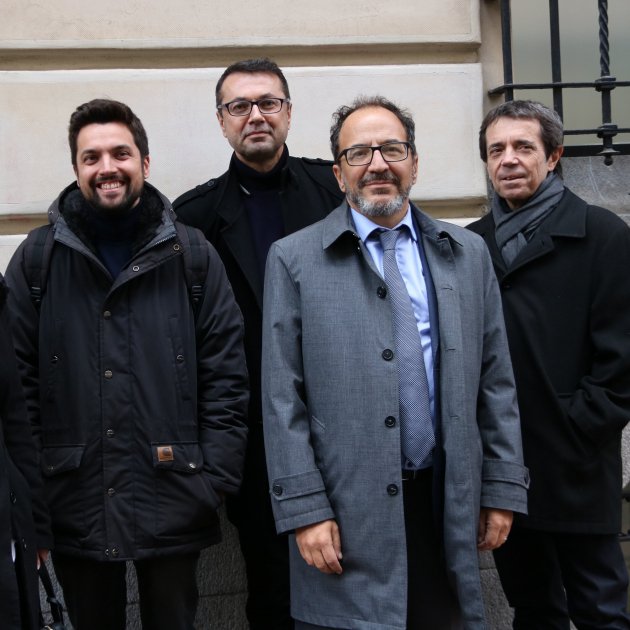Observers from the specially-formed International Trial Watch (ITW) have criticised aspects of the ongoing Catalan independence trial. For example, they believe presiding judge Manuel Marchena "is preventing verification of the credibility of certain witnesses and limiting [the defences'] questions". According to the observers who were present during the fourth week of hearings, that's "allowing the trivialisation of the police violence used on 1st October 2017" [emphasis in both quotes ours].
"The witnesses' credibility cannot be rigorously verified if their statements cannot be compared with other questions, with the exhibition of documents or video, realising the principle of contradiction requisite of criminal justice," they say in a statement released this Monday.
Criticism of the head judge
The observers remark that presiding judge Manuel Marchena has "repeatedly" denied the parties, "especially the defence", the "possibility to question witnesses proposed by the other side about facts under consideration related to their clients".
Moreover, they've also asserted that he has interrupted the lawyers during the hearings "especially when they are pointing out contradictions or trying to compare their testimony with other evidence". That happens especially when the topic of police violence against voters on 1st October comes up".
According to the experts working with ITW, that "can put into doubt the right to defence, equality of arms and, in short, the right to a fair trial provided in article 6 of the European Convention on Human Rights".
Other issues
Another aspect criticised by the report is the "communication between witnesses". "It remains of special concern" that they should obtain "prior information by being able to see what other witnesses say earlier", the observers write. "That's particularly stood out this week, observing police officers, in hierarchical order from highest to lowest, making their statements after having been able to earlier hear what their superiors had testified, to thus be able to construct an accusatory narrative of doubtful spontaneity".
The observers suggest that the fact that "so many" questions should be allowed on parliamentary rules and procedure bring into question the principle of parliamentary inviolability and reveal "the fundamentally political character of the trial". They say that there are "long debates of a political nature, over and above properly legal-penal elements and the exercise of fundamental rights".
When it comes to the prisoners, they say that "the accumulated tiredness from the hearings can cause important harm to [the defendants'] ability to follow [proceedings] and prepare their defence with their lawyers". The defendants have regularly been arriving back in their cells after 10pm to a cold dinner, then having to leave for court again before 8am the next day.
Positives
The report is not solely critical, however. The observers praise, for example, that Marchena tries to "guide the questioning in an ordered manner", "awards extra time to question the witnesses" and "tries to avoid leading questions".
The observers
Last week, the observers who attended were Gustavo Palmieri, lawyer and spokesperson for the governing board of the Centre for Legal and Social Studies and director of the Eduardo Luis Duhalde Centre for Justice and Human Rights at the National University of Lanús (Argentina); Hadi Cin, Turkish lawyer and member of European Democratic Lawyers; Monica Aranda, associate professor of Penal Law at the University of Barcelona; and Jorge Correcher Mira, doctor in the Penal Law department at the University of Valencia and collaborating lecturer at the Open University of Catalonia.
This week's hearings will be attended by Ralph J Bunche III, general secretary of the Unrepresented Nations and Peoples Organization, from Belgium; Hannibal Uwaifo, president of the African Bar Association, from Malawi; and Ricardo Juan Sánchez, professor in Procedural Law at the University of Valencia.
